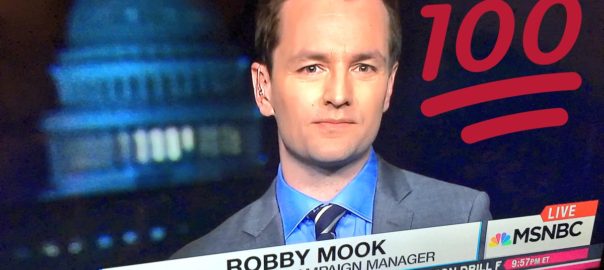By Kent R. Kroeger (Source: NuQum.com, June 21, 2017)
If you are reading this post, you probably have read more than a few analyses of the lessons learned from Georgia’s 6th Congressional District special election where Karen Handel (R) won over Jon Ossoff (D) by a 52 percent to 48 percent margin. But let me add three more lessons that you probably haven’t heard.
(1) First, the Congressional Leadership Fund ran the most brilliant political ad I’ve seen in a long time. If you don’t believe me, watch the ad here.
The TV ad simply links Ossoff to Nancy Pelosi (D-CA). It’s funny (even to Democrats I know) and makes a very relevant point: Ossoff raised the majority of his money from California. How do Democrats still not realize that most of America does not align itself with the politics of San Francisco, California?
The Civil Rights-Climate Change-Abortion party is not an attractive product. In fact, if the Democrats were a commercial product, it would have been discontinued soon after the 2010 election debacle. The product doesn’t sell.
And I am not just hating on the Democrats. I am the only political analyst who does not think Bernie Sanders is an unrealistic, out-of-touch socialist. He is not. He is actually trying to pull the Democrats into a policy space where the Democrats can dominate the Republicans across a broad swath of the American public.
The establishment Democrats (Barack Obama, Hillary Clinton, Joe Biden, Tom Perez, Kamala Harris) try to convince the Democrat base that post-materialist issues define the party’s future (civil rights, climate change, abortion) and that Bernie Sanders is an out-of-touch socialist who can’t win on a national level. However, the truth lies elsewhere.
Bernie Sanders and the progressives refuse to accept the strictures of the Democratic establishment and instead recognize the strategic advantages the Democrats possess relative to the Republicans when they emphasize old-time, materialist issues (employment and wage growth, fair trade agreements, health care access, student debt, education investment, non-interventionist, U.S. interest-focused military policies, etc.).
The Georgia special election reminded me again, as information consumers, we cannot accept the CNN, New York Times, Washington Post, FOX News, and MSNBC definitions of the political left and right. These news outlets are dominated by post-materialists who have little understanding or interest in the real world where most voters reside.
(2) The second lesson I gleaned from the Georgia election is…NEVER RELY ON ONE DATA SOURCE OR ANALYTIC METHOD.
Nate Silver and 538.com are not a bunch of geniuses who know something everyone doesn’t know. I’m a statistician by training and I believe decision-making must always include the best available data.
Yet, the problem is one of humility and most statisticians, including Nate Silver and his cohorts at 538.com, possess very little of that trait. Instead, they have developed one of the great cons of our time and a con that our media outlets systematically ignore.
This most recent Georgia election has put this con directly in the spotlight. Nate Silver and 538.com have learned that when making predictions, predict all possible outcomes, thereby making yourself appear to be the Nostradamus of your time. Its the political analog to climate change. Assert that all outcomes prove the validity of your model and you can’t go wrong.
They are modern-day versions of witch doctors.
If you don’t believe me, I invite you to read Nate Silver’s multiple predictions on the Georgia special election here.
It’s not that Nate Silver and 538.com are frauds. They are not. They earnestly employ sophisticated modeling techniques on a wide range of data sources (opinion surveys, econometric data, past voting behavior, etc.) to make predictions. One of Silver’s innovations is that he understands that electoral outcomes at the local and state levels are correlated with outcomes nationwide. Without modeling that fact, predictions will be biased.
No, the problem is not that Nate Silver and 538.com are frauds. They are not.
The problem is that they (and myself at times) fail to appreciate how unpredictable attitudes and behaviors can be within the American population. The data we collect on all Americans (past purchase behavior, current life stage, past voting behavior, public opinion polling, credit history, online behavior, etc.) is not enough information to reliably predict political behavior (i.e., how people will vote). It just isn’t.
We need only look at the hubris of the 2016 Hillary Clinton presidential campaign and its over-reliance on big data models for tactical decision-making to realize decisions based solely on data are susceptible to unacceptable amounts of error.
Clinton lost in Wisconsin, Michigan and Pennsylvania because the data models said she was safe in those states. The data failed.
Hillary Clinton lost the 2016 election, not because of the Russians, but because she allowed the data nerds to make tactical decisions that did not properly value real-time, survey-based opinion data — which is expensive to collect and analyze, but remains an irreplaceable element of today’s election campaigns.
Kellyanne Conway understood this fact. That is why the Trump campaign was well-positioned to exploit Clinton’s tactical errors.
Yes, this last conclusion is a little self-serving, but nonetheless true. Big data relies on easily available data sources. The data are not selected because of their theoretical relevance to the empirical question (How will people vote on election day?). It is selected because it is readily available and correlates with election outcomes.
But as we all learned in our first-year college statistics class, correlation is not causation. To assume it is, is not good data modeling practice.
(3) Finally, my third takeaway from the Georgia special election is that media-selected experts are not expert enough to be truly called experts. I don’t need to pick on any specific media analyst because they all, near universally, failed to provide any specific insights into the Georgia special election.
Laura Ingraham and Michael Moore are two exceptions. They seem to understand people at the DNA-level, even if they come from different ideological viewpoints.
We live in the age of faux expertise. In fact, it does appear to the naked eye, that the more someone fails in the American political circus, the more often they are relied upon for expert analysis on our news networks. Robby Mook and Jennifer Palmieri should be selling corn dogs on the Atlantic City, New Jersey boardwalk after what they did to the arguably “most qualified presidential candidate” in our nation’s history. Van Jones from CNN got it right when he assessed the competence of Clinton’s campaign operatives : They set fire to over $1 Billion and called it a campaign.
But, no, I am forced to regularly listen to the expertise of these former Clinton campaign operatives on CNN and MSNBC instead.
That’s what I learned from Georgia’s 6th Congressional District special election.
About the author: Kent Kroeger is a writer and statistical consultant with over 30 -years experience measuring and analyzing public opinion for public and private sector clients. He also spent ten years working for the U.S. Department of Defense’s Office of the Under Secretary of Defense for Personnel and Readiness and the Defense Intelligence Agency. He holds a B.S. degree in Journalism/Political Science from The University of Iowa, and an M.A. in Quantitative Methods from Columbia University (New York, NY). He lives in Ewing, New Jersey with his wife and son.

